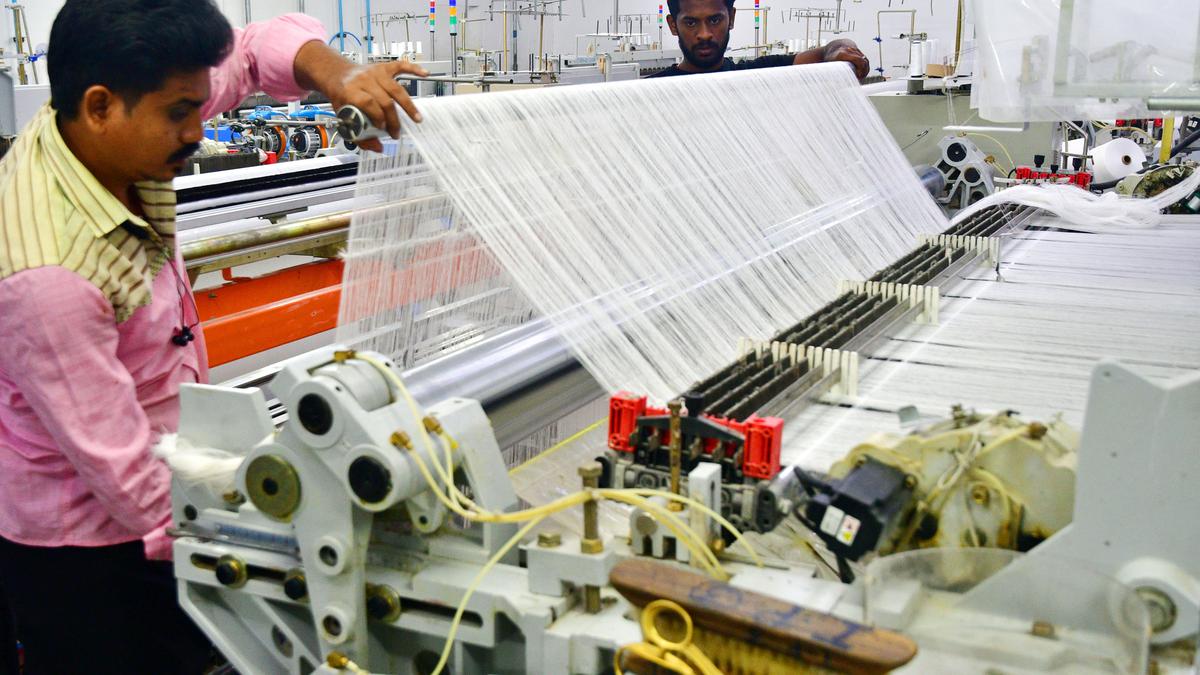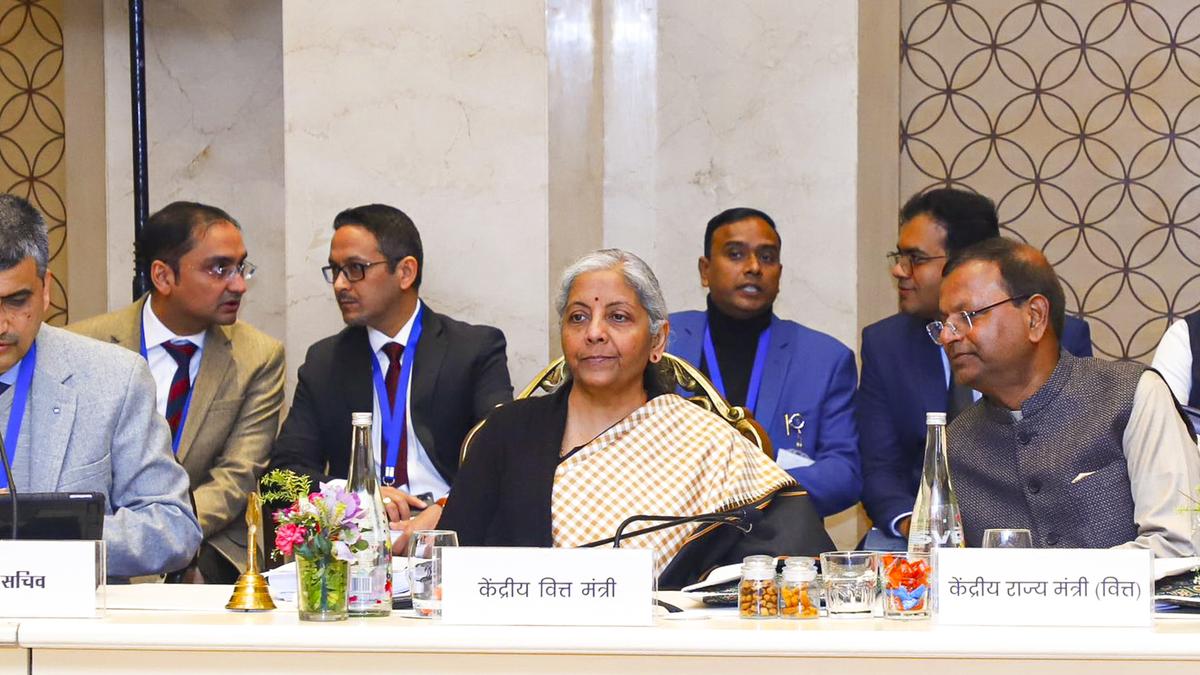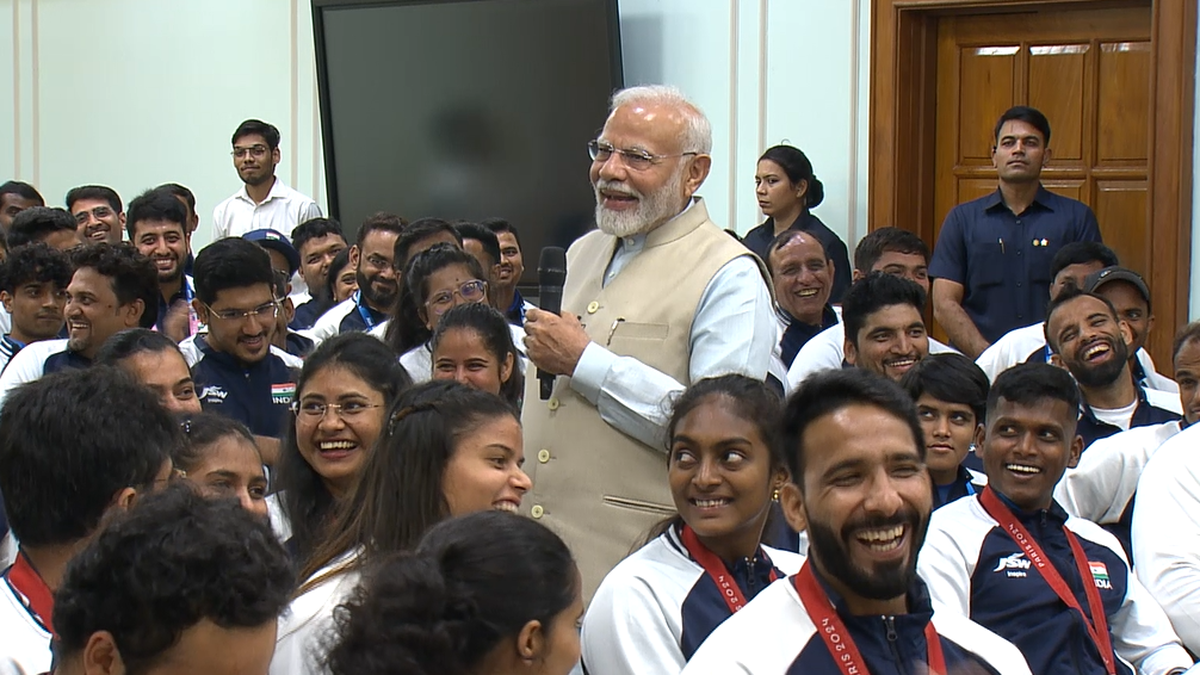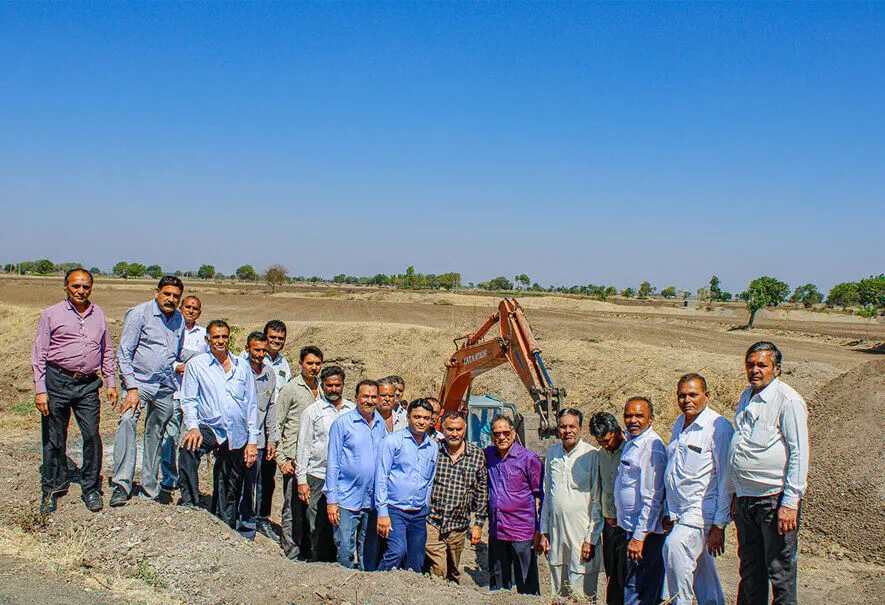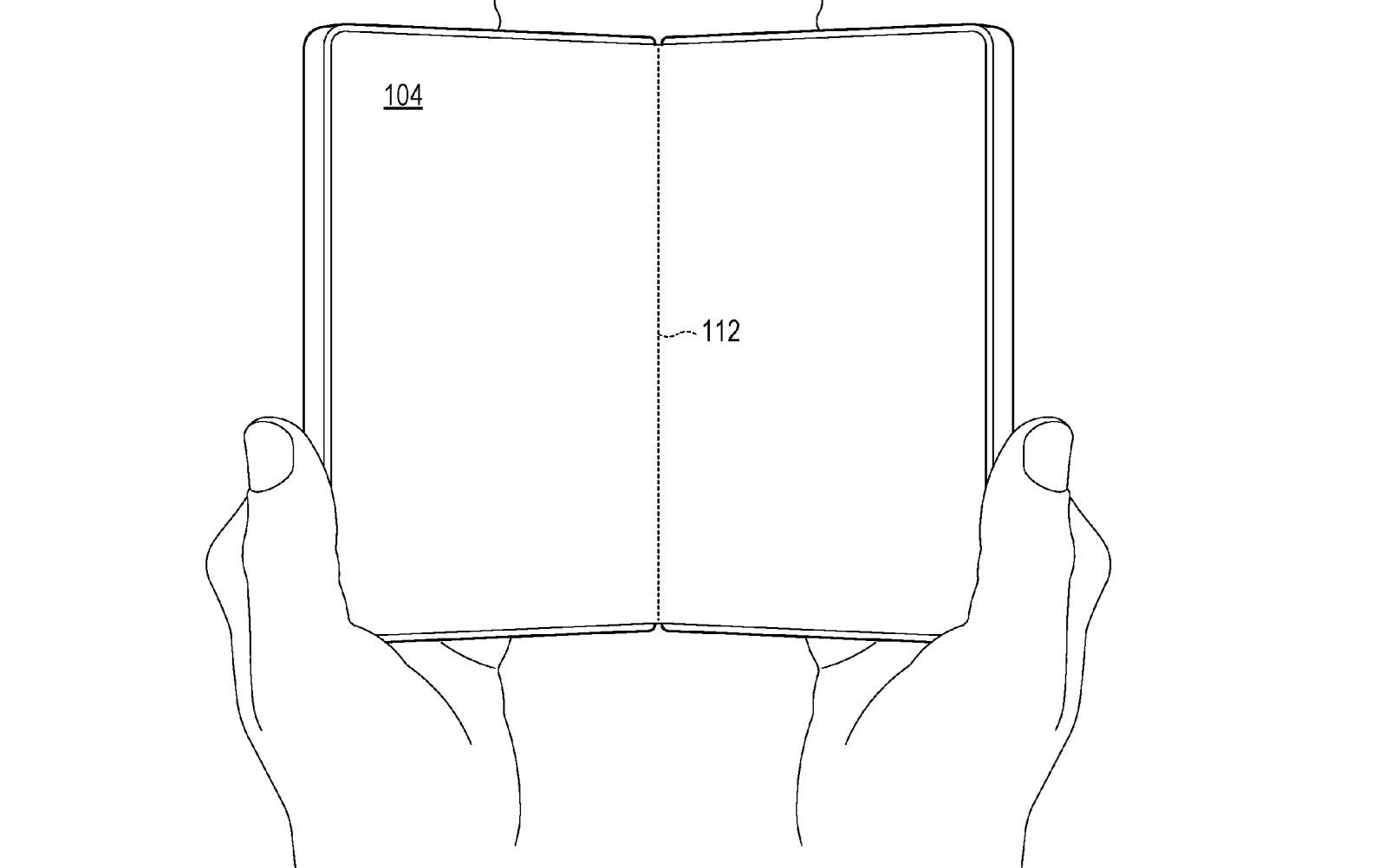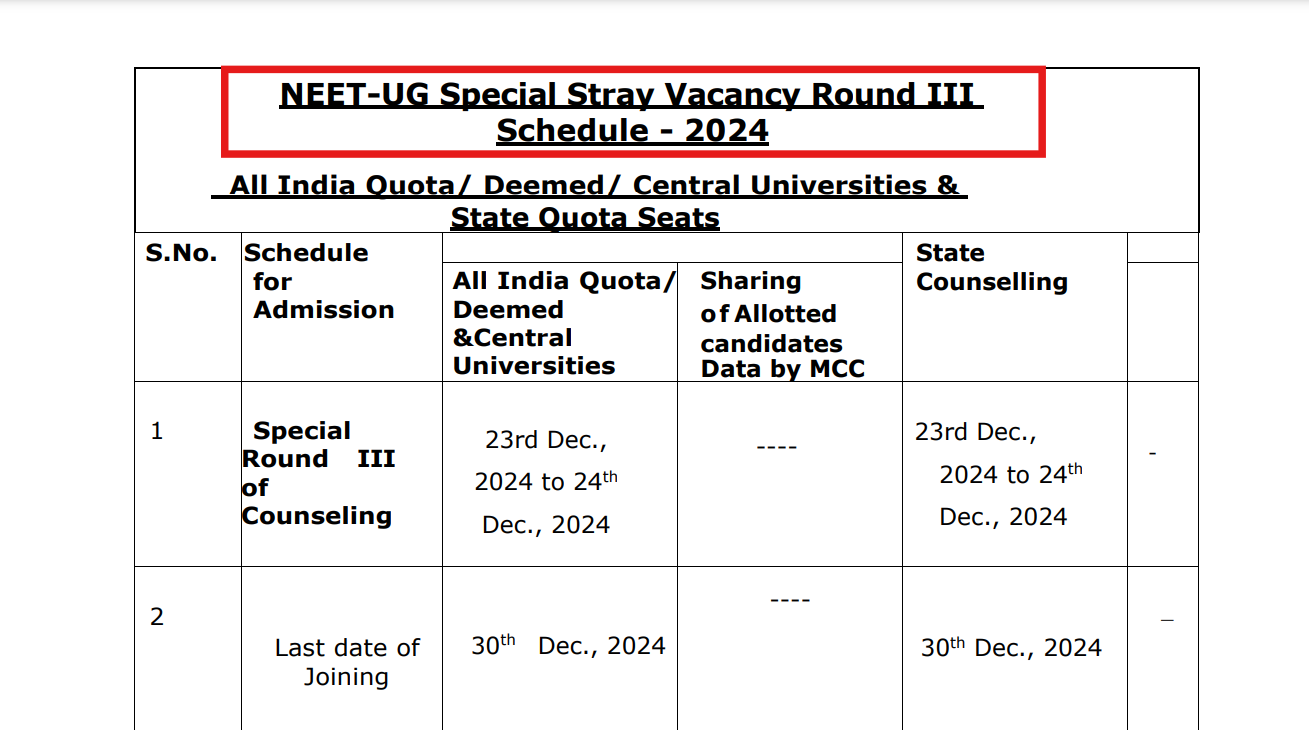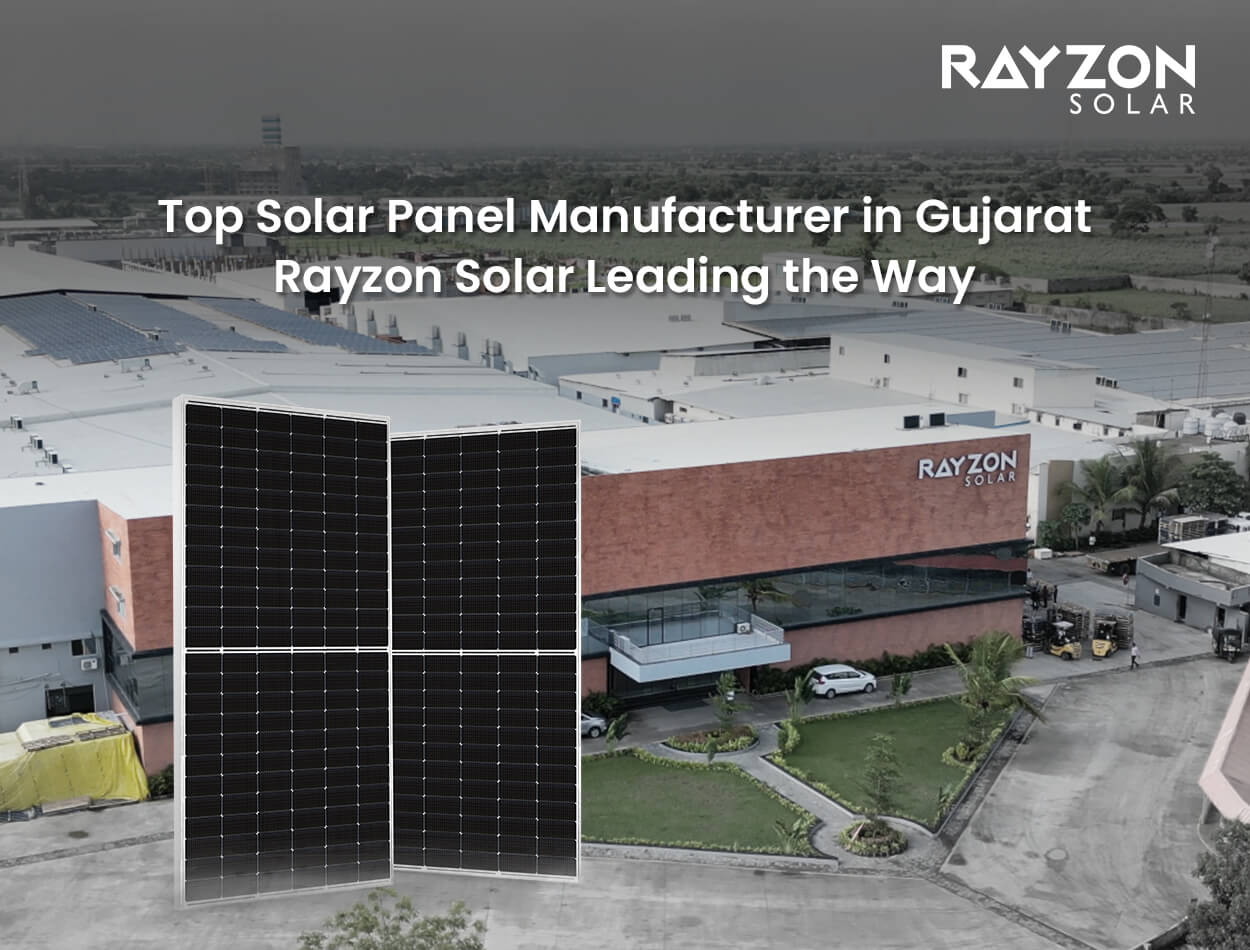Do Solar Panels Work on Cloudy Days?
Let's examine further how solar panels operate and their ability to deliver energy even when the sun isn't at its strongest. The post Do Solar Panels Work on Cloudy Days? appeared first on Rooftop Solar for your home and more - Blog | SolarSquare.
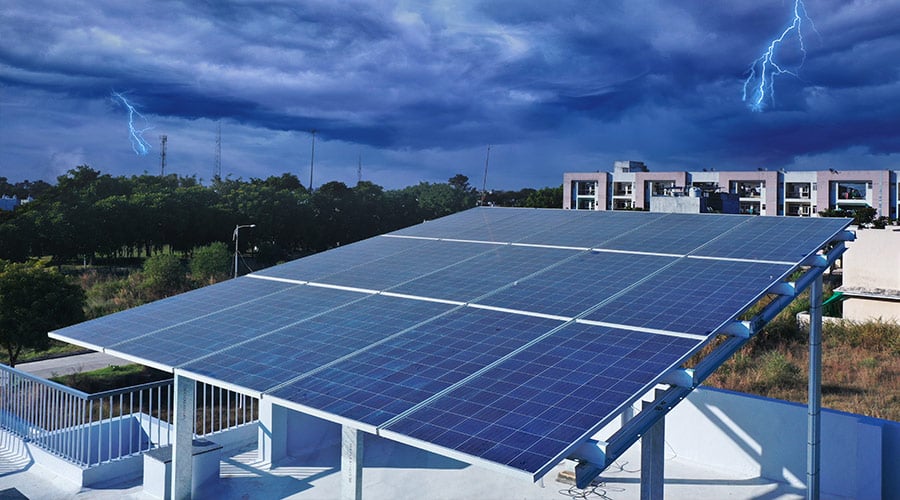
One of the most frequent questions from potential customers looking to install rooftop solar with us is, “Do solar panels work on cloudy and rainy days?”
The good news is–Yes. Solar panels do generate electricity even on overcast days.
Although they work best in direct sunlight, solar panels can still produce electricity when the sky is overcast. Solar panels can capture and use the diffuse light that passes through the clouds.
Modern solar panels are designed to function effectively in lower-light situations. They use photovoltaic (PV) cells to convert sunlight into usable electricity. Thus, even on cloudy days, the system can still generate enough power to keep your home running.
To understand how this works, let’s examine further how solar panels operate and their ability to deliver energy even when the sun isn’t at its strongest.
How does a solar panel work?
Solar panels produce electricity using the photovoltaic (PV) effect where each panel contains photovoltaic cells made of semiconductor materials, such as silicon.
When the sun’s rays hit the surface of a solar panel, the semiconductor material within absorbs the energy from the photons. This process causes electrons to be knocked loose from their atoms, creating an electric charge.
The output generated is Direct Current (DC) electricity, but our homes and businesses operate on Alternating Current (AC). This is where an inverter transforms DC into AC to power appliances, lighting, and various devices.
Now that we’ve covered how sunlight plays an important role in electricity generation, let’s see how solar panels work on cloudy days.
How do solar panels work on cloudy days?
Solar panels harness direct sunlight on clear days, which hits the Earth without interference. On cloudy days, the panels harness diffuse sunlight which can still generate electricity by scattering in different directions and exciting electrons in the solar cells. Although the power output may be reduced, it is not zero. They can still generate 25-50% of their typical output on cloudy days.
With advanced solar panel technologies like monocrystalline panels, you can count on consistent performance even in low-light conditions.
The impact of cloudy weather on solar panel efficiency
While solar panels can generate electricity even on overcast days, several elements influence how much electricity they’ll produce.
Key factors affecting solar efficiency on cloudy days
1. Thickness/Type of cloud cover
Thin, high-altitude clouds allow more diffuse light to reach the panels, while thick, low-lying storm clouds can block significant sunlight. This means that efficiency may only decrease by 10% on a lightly overcast day, but during a heavy storm, it could drop by up to 50%.
2. Time of year
Seasonal variation affects solar system performance as well. During summer, when daylight hours are longer, your solar system has more time to generate electricity, even if there are some cloudy hours.
However, winter days are shorter and have fewer hours of sunlight overall, so cloudy weather has a stronger impact. However, even in winter, solar can still be productive in areas with bright and clear days.
3. Geographic location
Southern states like Tamil Nadu, Kerala, and Karnataka, near the equator, enjoy abundant sunlight throughout the year—even when the skies are grey. While areas like Himachal Pradesh and Jammu & Kashmir have more seasonal variation, with winter bringing heavier cloud cover and shorter daylight hours, solar panels are still a viable option across all regions in India.
4. Local weather patterns
Certain regions may experience more overcast days than others, such as coastal areas or locations with frequent storms. This can affect the efficiency of electricity production through solar. However, places known for regular sunshine are less likely to see a significant decrease in power output, even during periods of cloudy weather.
Is it wise to choose solar energy in cloudy areas?
The good news is that, with the right system design, even cloudy areas can enjoy significant benefits from solar energy. Advanced technology and tailored systems can maximise production, regardless of the weather conditions.
In India, solar panels are most effective during the spring and summer due to longer daylight hours and direct sunlight. However, this does not mean they are ineffective during monsoon season or in regions with cloudier weather. You can still generate substantial electricity with the right strategies, even during cloudy or rainy days.
To maximise solar generation in areas with more cloud cover, here are a few important considerations:
1. Strategic panel orientation and tilt
In addition to the traditional south-facing installation, consider placing additional panels on north-facing roofs to capture more diffuse light scattered by clouds. You can also adjust the tilt of your panels to optimise exposure to diffuse sunlight and improve their efficiency.
2. High-efficiency panels
High-efficiency panels ensure that even low-light conditions produce as much energy as possible, thanks to advanced materials and design that allow panels to convert more light into electricity.
3. Smart inverter technology
Modern inverters help optimise energy output by converting even small amounts of sunlight into usable electricity. They maximise power generation under variable sunlight conditions, making them perfect for cloudy or overcast regions.
Partnering with experienced solar providers like SolarSquare ensures an optimised solar rooftop for your location. Our experts consider factors like regional sunlight patterns, the architecture of your home, and your energy consumption to create a personalised and efficient system.
Common myths about solar panels on cloudy days
Myth 1: Solar panels don’t work at all on cloudy days
Fact: While solar panels may not be as efficient in overcast weather, they can still generate electricity from diffuse sunlight. Even when the sun isn’t directly shining, clouds scatter sunlight across the sky, allowing solar cells to capture that scattered light. Some countries with frequent cloudy weather, like Germany and the UK, have successful solar industries, proving that solar power works effectively even in less-than-ideal conditions.
Myth 2: Solar only works well in the sunniest locations
Fact: Solar power may be more efficient in sunny locations, but modern technology has enabled solar panels to perform well in areas with moderate sunlight. In fact, most places receive enough sunlight throughout the year to make solar energy a cost-effective solution. For instance, regions like Maharashtra in India, which have sunny summers and rainy monsoons, still experience excellent returns from solar power.
Fun Fact: The best place in India where rooftop solar performs better is Leh, Ladakh. It sees over 320 sunny days a year and its low temperatures make it the perfect place for solar electricity generation.
Switch to Guaranteed Savings and Generation Solar with SolarSquare
SolarSquare is India’s #1 home solar company, with over 4,500 customer reviews and an outstanding Google rating of 4.8+. SolarSquare guarantees maximum efficiency and power generation, even on cloudy days.
Whether it is cloudy skies or high winds, our advanced systems, including the WindPro Mount for cyclone resistance and GoodZero’s 5-year savings guarantee, are engineered to perform in all weather conditions.
for cyclone resistance and GoodZero’s 5-year savings guarantee, are engineered to perform in all weather conditions.
Start your solar journey today with a custom-designed system tailored to your home and energy needs. Book your free consultation now and take the first step towards guaranteed electricity generation and long-term savings!
FAQs
Q1. How much electricity do solar panels produce on overcast days?
Ans. Solar panels can produce between 10% and 50% of their typical output on overcast days. This variation depends on factors such as the thickness and type of cloud cover and your geographic location. High-efficiency panels are designed to generate more electricity even in cloudy conditions, thus optimising your energy production.
Q2. How well do solar panels work on cloudy days?
Ans. Solar panels are generally 50-80% less efficient on cloudy days than on sunny days. Without sunlight, panels produce no electricity at night. According to NREL data, efficiency can drop to around 10-25% of peak capacity on overcast days. In contrast, you can expect efficiency levels to range from 50-80% on partly cloudy days.
Q3. How does weather impact solar panel efficiency?
Ans. Weather plays a significant role in determining how much sunlight reaches your panels. Factors such as cloud cover, rain, snow, and pollution can all affect output. While cold weather may slightly reduce solar cell efficiency, it can also improve performance since solar panels work better in cooler conditions.
Q4. How can I maximise solar production on cloudy days?
Ans. To optimise solar production in cloudy conditions, ensure your system is designed with proper panel tilt, orientation, and high-efficiency panels to perform well in diffuse light conditions. Additionally, keeping your panels clean and clear of obstructions, such as dirt or debris, will improve efficiency. Regular inspections and maintenance ensure that your system operates at its best, even on overcast days.
The post Do Solar Panels Work on Cloudy Days? appeared first on Rooftop Solar for your home and more - Blog | SolarSquare.
What's Your Reaction?





































